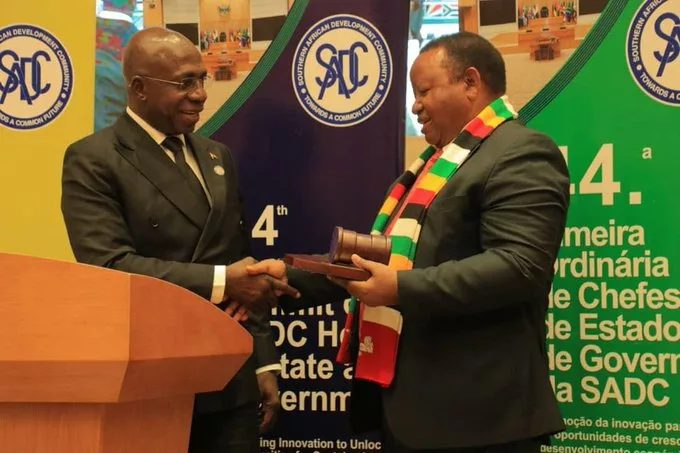|
Getting your Trinity Audio player ready...
|
The Southern African Development Community (SADC) took a significant step forward in its development agenda on Wednesday with the signing of a Memorandum of Understanding (MoU) between SADC and the Arab Bank for Economic Development in Africa (BADEA).
The MoU, signed in Harare, commits an initial US$8 billion from Arab sovereign wealth funds to support key investments across the SADC region.
The agreement, inked by SADC Executive Secretary, Elias Magosi and BADEA President, Dr Sidi Ould Tah, aims to bolster cooperation in critical sectors such as industry, transport, infrastructure, energy, water, health, trade, agriculture, and investment.
Speaking at the signing ceremony, Foreign Affairs and International Trade Minister Ambassador Frederick Shava, who was also the Guest of Honour, welcomed the partnership as a pivotal moment for SADC’s development.
“Our MoU commits both SADC and BADEA to promote cooperation in the areas of industry, transport, infrastructure, construction, energy, water, health, trade, agriculture, and investment. These are key developmental issues in the SADC development agenda,” Ambassador Shava stated.
The minister further highlighted the importance of collaboration in driving SADC’s regional integration agenda, which is guided by Vision 2050 and the regional indicative strategic development plan 2020-2030.
Ambassador Shava emphasized the urgent need for development financing in infrastructure, particularly in water, energy, and transport.
“I am hopeful that our discussions and exchanges today will be translated into impactful policy solutions that will support the preparation and implementation of infrastructure projects,” he said.
Dr Tah reaffirmed BADEA’s unwavering commitment to Africa’s development.
He announced that BADEA, in collaboration with its institutional partners, would allocate US$8 billion to support SADC in critical sectors such as transport, telecommunications, energy, and infrastructure.
However, he noted that this figure could be surpassed, given the substantial potential for development in the region.
“While we are proud of projects we have been able to do together in rural development, water supply, electricity generation and transmission, education, health, and research and development, we still do believe that the potential is much higher than what we have done so far. This forum aims to explore the potential of development and investment in this region,” Dr. Tah said.
Dr Tah highlighted the immense financial resources available through the Arab Bank for Economic Development, pointing out that the bank’s shareholders control a sovereign fund worth over US$1 trillion.
Speaking on the same occasion, Magosi underscored the significance of the investment forum, describing it as a platform to exchange views and develop solutions to the challenges faced by the region.
“We are increasingly experiencing devastating challenges to peace and security, climate change, low manufacturing base, stagnant growth, and wasteland terms of trade. These challenges require well-thought-out solutions,” he remarked.
He stressed the importance of innovative and cutting-edge ideas that can be transformed into actionable solutions to uplift the region’s people from the devastating impacts of poverty, hopelessness, and despair.
In the backdrop of these high-level discussions, several exhibitors showcased their offerings during the forum.
They expressed optimism that such engagements would provide them with valuable opportunities to connect with potential international buyers, further boosting the region’s economic prospects.






